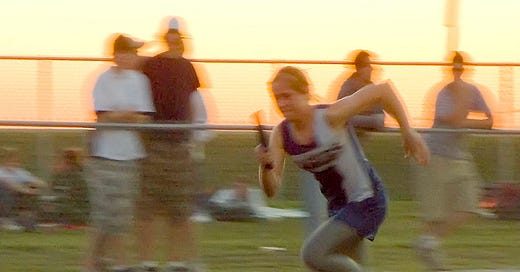On donuts and writing
What I talk about when I talk about mental strength, what makes us fat and upcycled cocoa honey.
Maybe you’ve heard about the extreme weather hitting northern California? It’s real. My power went out last night at 8:30pm. Early enough to call it a night. I grabbed a candle and my Kindle and headed to bed. Then I lay there waiting for what else might arrive alongside the biblical amount of rain and 25 mph winds. I was happy to have a roof over my he…
Keep reading with a 7-day free trial
Subscribe to Technically Food to keep reading this post and get 7 days of free access to the full post archives.


